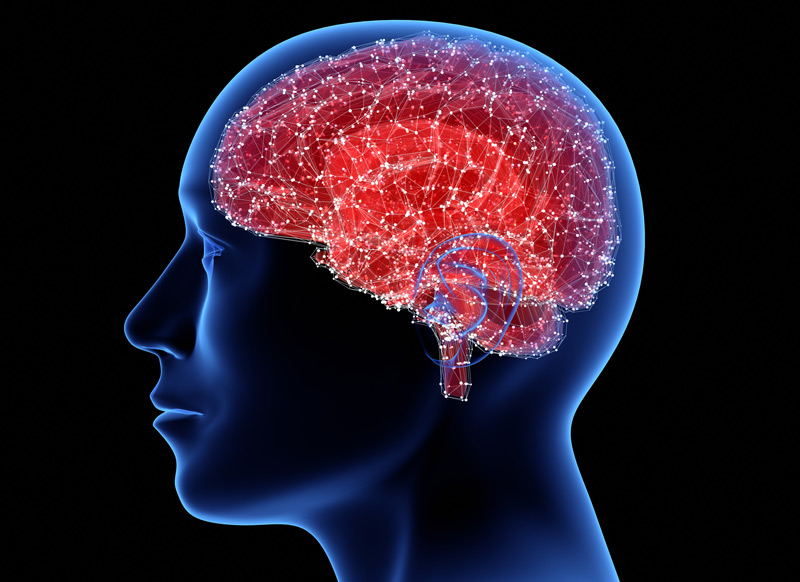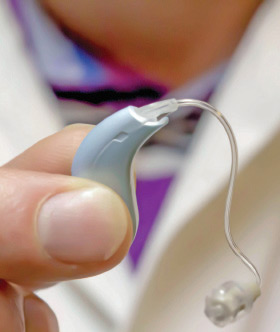Research from the National Institute on Deafness and Other Communication Disorders (NIDCD) shows that an estimated 28.8 million adults in the United States could benefit from hearing aids. Fewer than 30% of this population, however, have ever actually used hearing aids. In fact, research suggests that most hearing aid users wait at least 10 years after the onset of their hearing loss to seek intervention. For those who are candidates, hearing aids treat hearing loss by giving the user access to sounds they are unable to detect with their ears alone, improving speech understanding and awareness of environmental sounds. The large population of patients with untreated hearing loss are not only missing out on these direct benefits, but are also at risk for additional physical and psychological health issues. Hearing loss affects every individual differently, but research has identified numerous potential negative consequences that are more likely to arise in hearing impaired people.
One of the most basic concerns with untreated hearing loss is general safety. Sounds such as alarms, sirens, car horns, or verbal warnings can signal threats to personal safety, prompting individuals to react accordingly and protect themselves. Inability to detect these signals can therefore put a person in danger. For instance, individuals with high frequency hearing loss, which is common in adults, will lose access to high-pitched sounds. As a result, they may not hear the siren of an approaching emergency vehicle or even an emergency alarm in their home. In addition, hearing loss has been associated with an increased risk of falling in older adults. Decreased environmental sound awareness could put older adults at increased risk for injury.
Hearing loss has an emotional impact as well. It is linked to increased feelings of depression, anxiety, frustration, and social isolation. This likely stems from the impaired communication that result from declined speech understanding. A common early sign of hearing loss is difficulty communicating in noisy environments. This can restrict those with hearing loss to only quiet environments and small group conversation, which may be quite isolating. As hearing loss becomes more severe and communication becomes increasingly difficult, individuals may further withdraw from social situations, greatly diminishing quality of life.
Another potential consequence of hearing impairment is "listening fatigue." Due to the degradation of auditory cues caused by hearing loss, listeners may need to rely more heavily on non-auditory information to understand speech. This can include visual information, such as gestures and lip-reading, or contextual information, such as knowledge of conversational topic or grammar. This requires added attention, concentration, and overall "cognitive effort," which research suggests may lead to mental fatigue (Hornsby, B.W., 2013). Such mental fatigue may further contribute to the increased stress, social isolation, and additional health risks reported to be associated with hearing loss.
Hearing loss has been associated with numerous other health concerns beyond what is summarized above including cardiovascular disease, and chronic kidney disease. Research from Johns Hopkins University has linked hearing loss to cognitive decline, showing an increased incidence of dementia in hearing impaired individuals. Neuroimaging has revealed accelerated brain atrophy associated with hearing loss. Although the exact mechanism of this relationship remains unknown, further research could explore whether interventions for hearing impairment, including hearing aids, could reduce risk of cognitive decline.
Hearing loss is a complex process broadly connected to one's psychological and physical health. These connections highlight the importance of addressing hearing loss early on. Whether seeking intervention, concerned of a medical issue, or simply monitoring hearing status, hearing care is an important component of overall health. If you begin to notice symptoms such as difficulty detecting certain sounds, difficulty understanding speech, or ringing in the ears, call Johnson Audiology to schedule a diagnostic hearing evaluation.
Noteworthy: Hearing loss affects every individual differently, but research has identified numerous potential negative consequences that are more likely to arise in hearing impaired people.
MORE INFORMATION
For more information about the effects and signs of hearing loss, contact the team at Johnson Audiology at 423-710-1432 or visit johnsonaudiology.com


